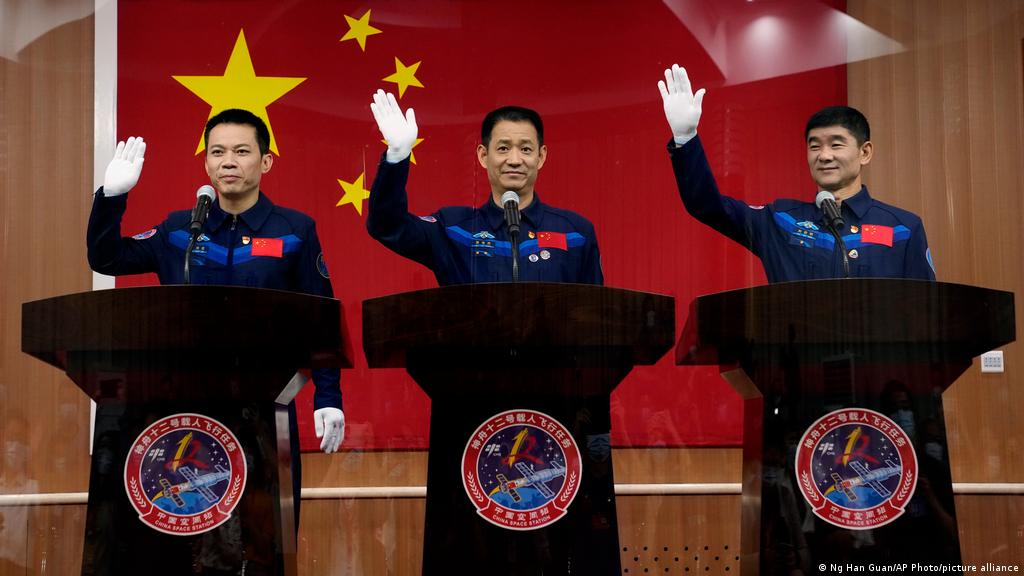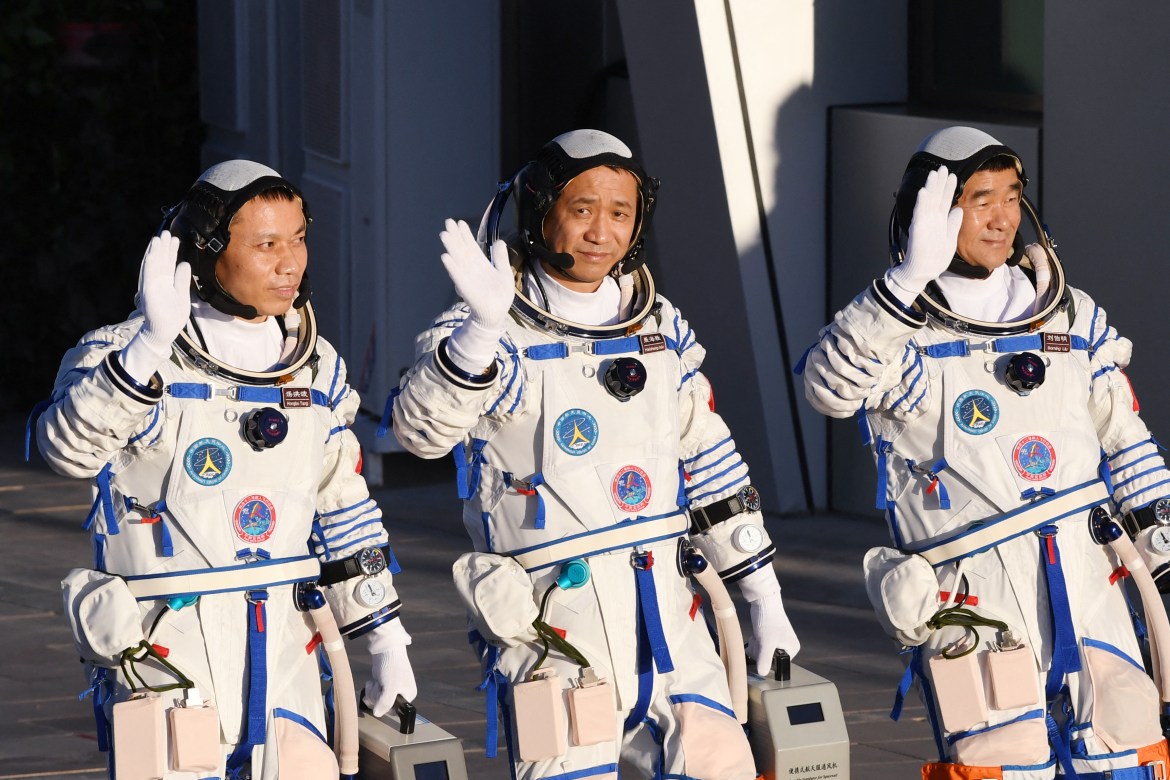The Shenzhou 14 crew will spend six months on the Tiangong station, during which they will oversee the addition of two laboratory modules to join the main Tianhe living space that was launched in April 2021.
China has launched a rocket carrying three astronauts on a mission to complete construction on its new space station, the latest milestone in Beijing’s drive to become a major space power.
The trio blasted off in a Long March-2F rocket at 0244 GMT on Sunday from the Jiuquan launch centre in northwestern China’s Gobi desert, said state broadcaster CCTV, with the team to spend six months expanding the Tiangong space station.
Tiangong, which means “heavenly palace,” is expected to become fully operational by the end of the year.
The Shenzhou-14 crew is tasked with “completing in-orbit assembly and construction of the space station,” as well as “commissioning of equipment” and conducting scientific experiments, state-run CGTN said on Saturday.
Led by air force pilot Chen Dong, 43, the three-person crew’s main challenge will be connecting the station’s two lab modules to the main body.
Dong, along with fellow pilots Liu Yang and Cai Xuzhe, will become the second crew to spend six months aboard the Tiangong after the last returned to earth in April following 183 days on the space station.
Tiangong’s core module entered orbit earlier last year and is expected to operate for at least a decade.
The completed station will be similar to the Soviet Mir station that orbited Earth from the 1980s until 2001.
‘Space dream’
The world’s second-largest economy has poured billions into its military-run space programme, with hopes of having a permanently crewed space station by 2022 and eventually sending humans to the Moon.
The country has made large strides in catching up with the United States and Russia, whose astronauts and cosmonauts have decades of experience in space exploration.
READ ALSO: Russia: President Putin blames West for food, energy crises
But under Chinese President Xi Jinping, the country’s plans for its heavily promoted “space dream” have been put into overdrive.
In addition to a space station, Beijing is also planning to build a base on the Moon, and the country’s National Space Administration said it aims to launch a crewed lunar mission by 2029.
China has been excluded from the International Space Station since 2011, when the United States banned NASA from engaging with the country.
While China does not plan to use its space station for global cooperation on the scale of the ISS, Beijing has said it is open to foreign collaboration.
The ISS is due for retirement after 2024, although NASA has said it could remain functional until 2030.














